June 28, 2024 | 03:34 GMT +7
June 28, 2024 | 03:34 GMT +7
Hotline: 0913.378.918
June 28, 2024 | 03:34 GMT +7
Hotline: 0913.378.918
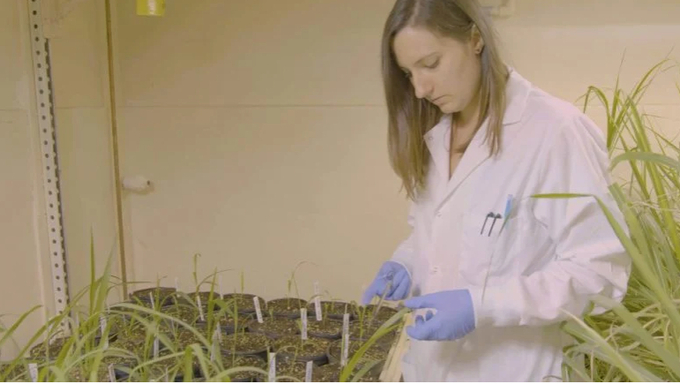
Eleanor Brant collecting leaf samples for molecular analysis of gene-edited sugarcane. Credit: Charles Keato.
Sugarcane ranks as the top crop globally in terms of biomass yield, contributing to 80 percent of sugar and 40 percent of biofuel production around the world. Its substantial size and optimal utilization of water and light position it as an ideal source for generating innovative renewable bioproducts and biofuels.
However, as a hybrid of Saccharum officinarum and Saccharum spontaneum, sugarcane has the most complex genome of all crops. This complexity means that improving sugarcane through conventional breeding is challenging. Because of this, researchers turn to gene editing tools, such as the CRISPR/Cas9 system to precisely target the sugarcane genome for improvement.
In their new paper, published in Plant Biotechnology Journal, a team of researchers from the University of Florida at the Center for Advanced Bioenergy and Bioproducts Innovation (CABBI) has leveraged this genetic complexity to their advantage to use the CRISPR/Cas9 system to fine-tune leaf angle in sugarcane. These genetic tweaks allowed the sugarcane to capture more sunlight, which in turn increased the amount of biomass produced.
This work supports the DOE-funded CABBI Bioenergy Research Center’s “plants as factories” approach and the primary goal of its Feedstock Production research — to synthesize biofuels, bioproducts, and high-value molecules directly in the stems of plants such as sugarcane.
The sugarcane genome’s complexity is due in part to its high levels of redundancy: It possesses many copies of each gene. The phenotype that a sugarcane plant displays, therefore, typically depends on the cumulative expression of the multiple copies of a certain gene. The CRISPR/Cas9 system is perfect for this task because it can be designed to edit a few or many copies of a gene at once.
This study focused on LIGULELESS1, or LG1, a gene that plays a major role in determining leaf angle in sugarcane. Leaf angle, in turn, determines how much light can be captured by the plant, which is critical for biomass production. Since sugarcane’s highly redundant genome contains 40 copies of LG1, the researchers were able to fine-tune the leaf angle by editing different numbers of copies of this gene, resulting in slightly different leaf angles depending on how many copies of LG1 were edited.
“In some of the LG1 edited sugarcanes, we just mutated a few of the copies,” said Fredy Altpeter, research team lead and Professor of Agronomy at the University of Florida
Established in 1853, the University of Florida (Florida or UF) is a public land-grant, sea-grant, and space-grant research university in Gainesville, Florida. It is home to 16 academic colleges and more than 150 research centers and institutes. University of Florida offers multiple graduate professional programs, including business administration, engineering, law, dentistry, medicine, pharmacy, and veterinary medicine, and administers 123 master's degree programs and 76 doctoral degree programs in eighty-seven schools and departments.
" data-gt-translate-attributes="[{"attribute":"data-cmtooltip", "format":"html"}]" tabindex="0" role="link" style="margin: 0px; padding: 0px; border-width: 0px 0px 1px; border-top-style: initial; border-right-style: initial; border-bottom-style: dotted; border-left-style: initial; border-top-color: initial; border-right-color: initial; border-bottom-color: rgb(0, 0, 0); border-left-color: initial; border-image: initial; font: inherit; vertical-align: baseline; text-decoration: none !important; color: rgb(0, 0, 0) !important;">University of Florida. “And in doing so, we were able to tailor the leaf architecture until we found the optimal angle that resulted in increased biomass yield.”
When the scientists grew sugarcane in field trials, they found that the upright leaf phenotypes allowed more light to penetrate the canopy, which resulted in increased biomass yield. One sugarcane line in particular, which contained edits in ~12% of the LG1 copies and showed a 56% decrease in leaf inclination angle, had an 18% increase in dry biomass yield.
By optimizing sugarcane to capture more light, these gene edits increase biomass yield without having to add more fertilizer to the fields. In addition to that, building a stronger understanding of complex genetics and genome editing helps researchers work toward refined approaches for crop improvement.
“This is the first peer-reviewed publication describing a field trial of CRISPR-edited sugarcane,” Altpeter said. “And this work also shows unique opportunities for the editing of polyploid crop genomes, where researchers can fine-tune a specific trait.”
Reference: “The extent of multiallelic, co-editing of LIGULELESS1 in highly polyploid sugarcane tunes leaf inclination angle and enables selection of the ideotype for biomass yield” by Eleanor J. Brant, Ayman Eid, Baskaran Kannan, Mehmet Cengiz Baloglu and Fredy Altpeter, 22 May 2024, Plant Biotechnology Journal.DOI: 10.1111/pbi.14380
Co-authors on this study included CABBI researchers at the University of Florida Department of Agronomy, Eleanor Brant, Ayman Eid, Baskaran Kannan, and Mehmet Cengiz Baloglu.
(Scitechdaily)
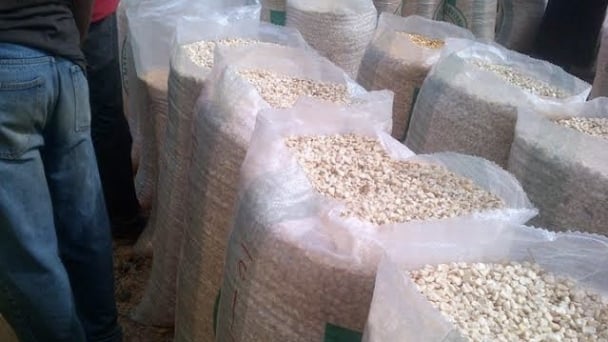
(VAN) NBMA said the agency had been alerted to Nigerians’ concerns about the approval and launch of TELA maize in the country.
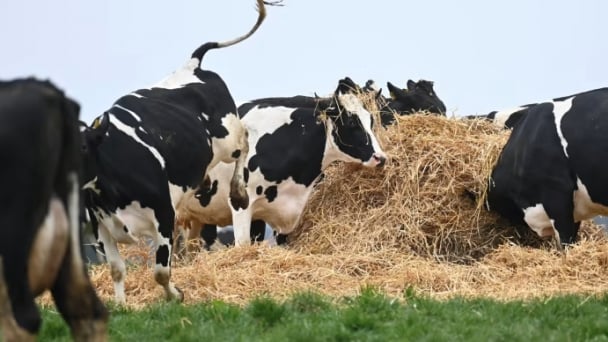
(VAN) Coalition government agrees annual levy on emissions from livestock after months of fraught negotiations.
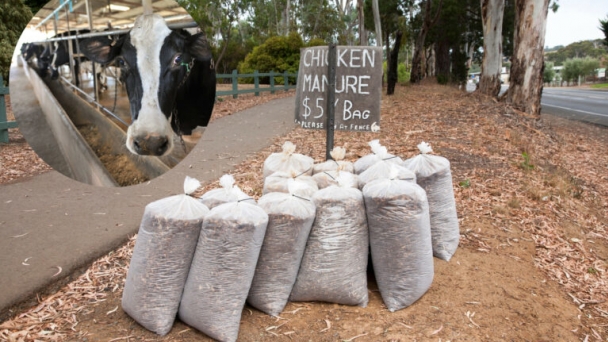
(VAN) Concerns about the spread of avian influenza to dairy cows in the US has prompted a US Senator to introduced legislation aimed at eliminating the factory farm practice of adding animal excrement to livestock feed.
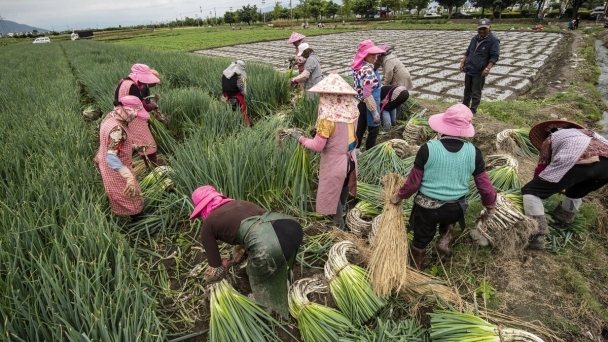
(VAN) China is further restricting fertilizer exports, as it seeks to contain domestic prices, cut farming costs and bolster grain security.

(VAN) Hundreds of thousands of doses of zoonotic influenza vaccines to prevent avian influenza have been snapped up by the European Commission as part of its mandate on preparedness.
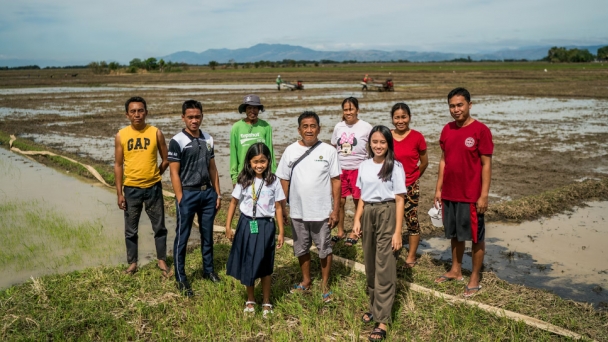
(VAN) Some 2.4 million Filipinos work as rice farmers. But for young people, a rice farmer’s grueling and often impoverished life holds dwindling appeal.